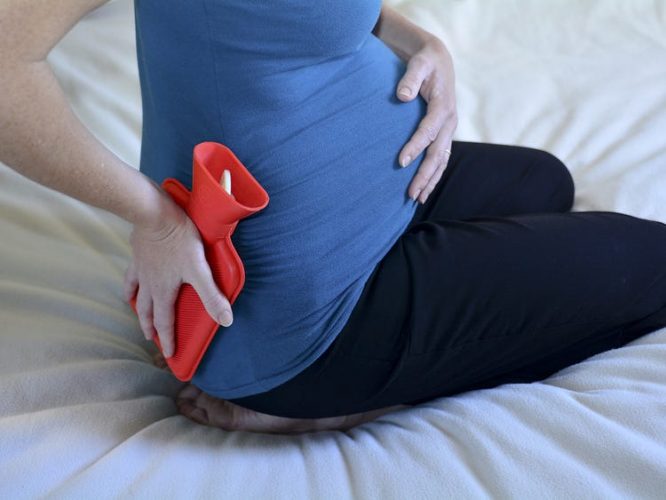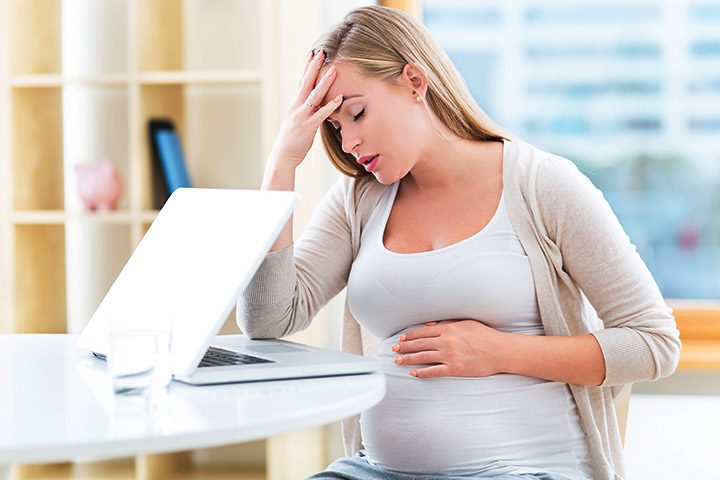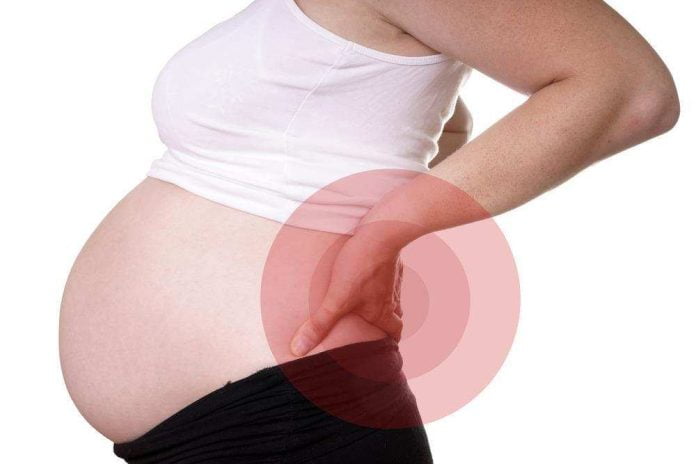Evaluation of low back pain during pregnancy is difficult because the pain is usually the result of a combination of problems. Physical examination is important to distinguish low back pain from posterior pelvic pain.
Diagnosis of low back pain is usually clinical as there are very few radiological and laboratory tests available to aid in diagnosis because of fear of harming the fetus. When the source of the problem is difficult to determine by history and examination alone, imaging techniques can be considered though it should be used sparingly.
Magnetic Resonance imaging (MRI) without contrast is considered the safest imaging modality for spinal pathologies that manifest during pregnancy.
CT scan and X-rays use ionizing radiation for imaging. These modalities has been associated with the risk of spontaneous abortions, intrauterine growth restriction, neurobehavioral abnormalities, fetal malformations and carcinogenesis, hence it is better to avoid them.
Ultrasonography (USG) is considered safe in pregnancy, but it provides limited information.
Prevention and Treatment
Most women consider back discomfort as an inevitable part of pregnancy and do not seek treatment from a health care professional. Often, however, you can prevent or ease back pain during pregnancy. Consider the following ways to get rid of back pain of pregnancy:
Physical activity and Exercises :-
- Regular physical activity and exercises make the back muscles and ligaments strong.
- Exercise before and early in pregnancy can strengthen abdominal, back, and pelvic muscles, which improves posture and allows increased weight bearing ability.
- Low intensity exercise can also alleviate the pain once it develops. Pelvic tilts are particularly effective in relieving lumbar pain. Knee pull, straight leg raising, curl up, lateral straight leg raising and Kegel exercises help in relieving low back pain in pregnant women.
Proper Posture :-
- Poor posture can put strain on the spine, so correct posture when working, sitting or sleeping is a must.
- Sleeping on your side with a pillow between your knees and under the abdomen can take stress off your back.
- When sitting, place a pillow behind your back for support, elevate your feet, and sit up straight, with your shoulders back.
- Support belts and corsets are another means to support the back.
- Avoid twisting your spine.
Footwear :-
Wear low-heeled -not flat-shoes with good arch support. Avoid high heels, which can further shift your balance forward and cause you to fall.
Avoid bending forward :-

- Bend your knees and keep your back straight when you lift or pick something up from the floor
- And avoid lifting heavy objects.
Heat and cold :-

Applying hot and cold packs on the back may help to reduce the pain. Start by putting cold compresses on the painful area for up to 20 minutes as needed. After two or three days, use heat, with a heating pad or hot water bottle on the painful area. Be careful not to apply heat to your abdomen during pregnancy.
Medication :-
Paracetamol is the safest drug which can be given for pain throughout the pregnancy. No other drug should be taken for pain relief during first 3 months of pregnancy as the organs of the child are developing. Opioids, NSAIDs and muscle relaxants can be prescribed after first three months of pregnancy up to 32 weeks of pregnancy in limited doses.
Other therapies :-
Prenatal yoga or aqua natal classes (gentle exercise classes in water) with a qualified instructor can also help build your muscles to support your back better.
When to See a Doctor for Back Pain during Pregnancy?
Even if you experience only mild back pain, it is important to inform your doctor. He or she can recommend the best methods for you to manage those symptoms and can then monitor you throughout your pregnancy for worsening symptoms.
If symptoms are severe and are persistent or prolonged, see the doctor right away.
You should see the doctor and seek immediate medical care if back pain is accompanied by any of the following;
Numbness or weakness :-

Severe pain, numbness or weakness in the legs may be a sign of pressure over the nerves. It usually happens with a disc bulge or prolapse. The pain is usually felt below the knee and in foot and toes along with a tingling sensation, numbness or weakness. Visit your doctor immediately if you feel weakness in one or both legs, or loose sensation in your legs, groin, bladder or anus.
Fever and dull ache :-
A fever accompanied by a dull ache across your lower back or along the sides of your back could be a sign of a kidney or bladder infection. This would require immediate attention and treatment with antibiotics. Visit your doctor immediately if you feel back pain accompanied by painful urination, blood in the urine, chills, or fever.
In rare cases, severe back pain may be related to problems such as pregnancy-associated osteoporosis, vertebral osteoarthritis, or septic arthritis. Rhythmic pains may be a sign of preterm labor. So if you are experiencing any of these problems, it’s important to be checked by your doctor.

